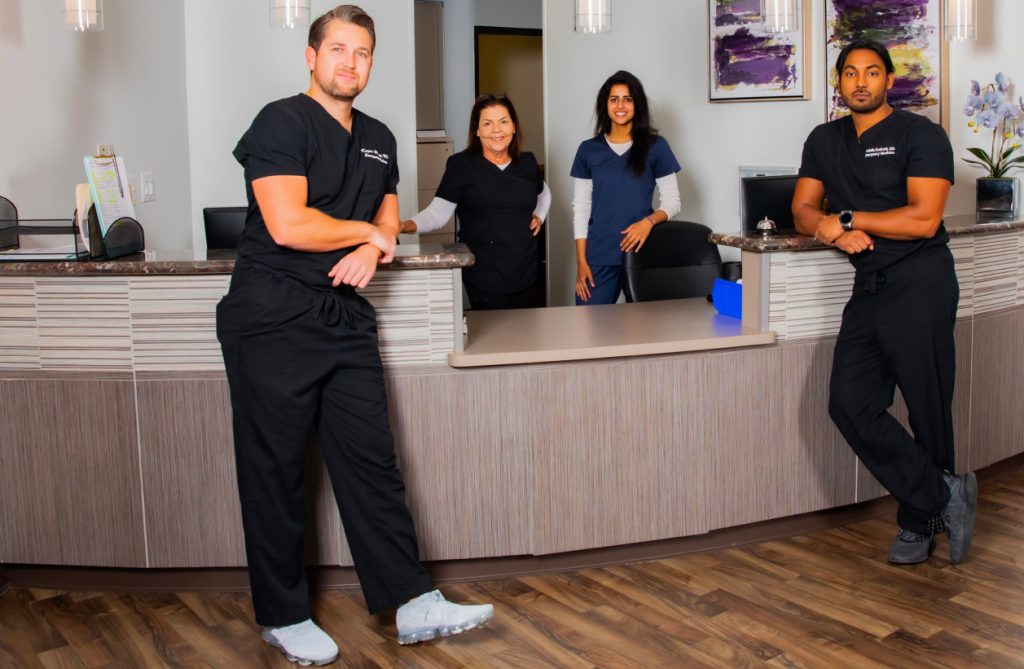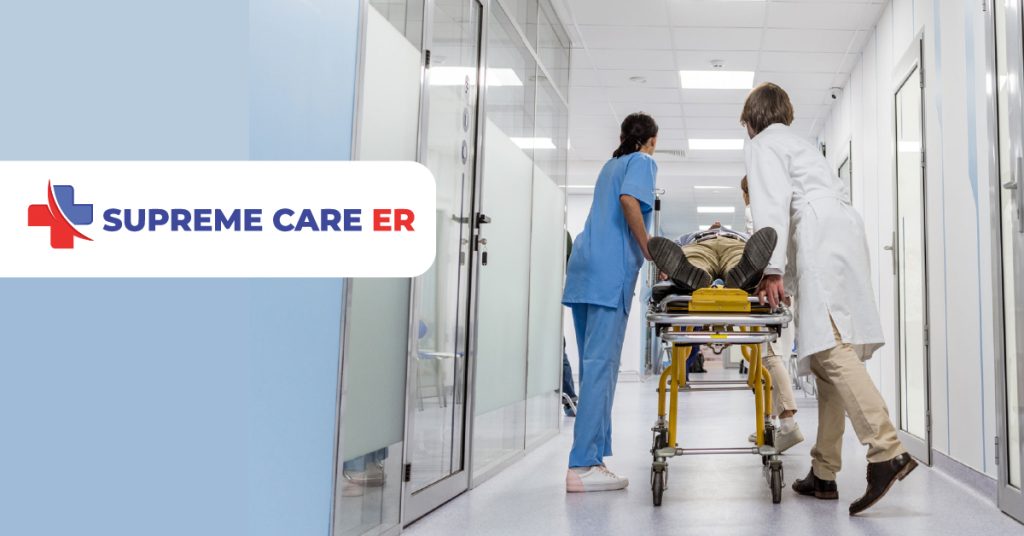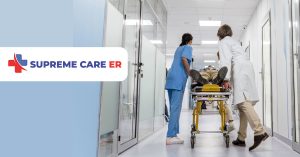Heart Disease Prevention, Causes, Warning Signs, and When to go to the ER
In a world where heart disease remains a leading cause of mortality, safeguarding cardiovascular health is paramount. At Supreme Care ER, we recognize the critical importance of proactive measures, timely intervention, and awareness in preventing heart disease and ensuring optimal well-being. Let’s delve into essential aspects of heart disease prevention, its causes, warning signs, and when it’s imperative to seek assistance from our dedicated team.
At Supreme Care ER the finest emergency room in Jersey Village near Cypress Texas. We’re happy to provide you with the emergency care that you need in the event of a medical emergency.
Prevention: A Pillar of Heart Health
Preventing heart disease involves adopting a holistic approach to lifestyle choices and health management. Incorporating the following habits can significantly reduce the risk:
- Healthy Diet: Embrace a diet rich in fruits, vegetables, lean proteins, and whole grains while limiting saturated fats, trans fats, cholesterol, sodium, and added sugars.
- Regular Exercise: Engage in moderate-intensity aerobic activities like brisk walking, swimming, or cycling for at least 150 minutes per week, complemented by strength training exercises.
- Maintain a Healthy Weight: Aim for a body mass index (BMI) within the recommended range to alleviate strain on the heart and lower the risk of associated conditions.
- Manage Stress: Practice stress-reduction techniques such as meditation, deep breathing exercises, or yoga to mitigate the adverse effects of chronic stress on cardiovascular health.
- Quit Smoking: Eliminate tobacco use and avoid exposure to secondhand smoke to decrease the likelihood of heart disease and other related complications.

Understanding Heart Disease: Causes and Risk Factors
Heart disease encompasses various conditions that affect the heart’s structure and function. While multiple factors contribute to its development, some primary causes and risk factors include:
- High Blood Pressure (Hypertension): Prolonged elevation in blood pressure levels increases the strain on the heart, leading to potential damage to arteries and the heart muscle itself.
- High Cholesterol: Elevated levels of cholesterol in the blood can lead to the accumulation of plaque in the arteries, restricting blood flow and increasing the risk of heart attack and stroke.
- Diabetes: Poorly managed diabetes can damage blood vessels and nerves, escalating the risk of cardiovascular complications such as coronary artery disease and peripheral artery disease.
- Obesity: Excess body weight contributes to the development of conditions like hypertension, high cholesterol, and diabetes, all of which elevate the risk of heart disease.
- Family History: Genetic predispositions to heart disease can significantly influence an individual’s susceptibility to developing similar conditions.

Recognizing Warning Signs: When to Take Action
Early detection of potential heart issues is crucial for prompt intervention and management. Common warning signs of heart disease include:
- Chest Discomfort: Uncomfortable pressure, squeezing, fullness, or pain in the center of the chest that may radiate to the arms, back, neck, jaw, or stomach.
- Shortness of Breath: Difficulty breathing or sudden onset of breathlessness, particularly during physical activity or while at rest.
- Fatigue: Persistent fatigue or weakness, especially accompanied by dizziness, lightheadedness, or fainting spells.
- Palpitations: Irregular heartbeats, rapid heart rate, or sensations of fluttering or pounding in the chest.
- Swelling: Unexplained swelling in the legs, ankles, feet, or abdomen due to fluid retention, often indicative of heart failure.

When to Seek Help: Trust Supreme Care ER
At Supreme Care ER, we prioritize your cardiovascular health and well-being. If you experience any concerning symptoms or suspect a heart-related emergency, do not hesitate to seek immediate medical attention, especially if you encounter:
– Chest Pain: Severe chest pain, particularly accompanied by sweating, nausea, or shortness of breath.- Sudden Weakness: Sudden weakness or numbness in the face, arm, or leg, especially if it occurs on one side of the body.
– Loss of Consciousness: Fainting or loss of consciousness, regardless of duration.
– Severe Shortness of Breath: Difficulty breathing that worsens rapidly or fails to improve with rest. Remember, timely intervention can be life-saving in the case of a heart emergency.
Our team of experienced medical professionals at Supreme Care ER is available 24/7, providing fast, reliable, and compassionate care when you need it most.

In conclusion, prioritizing heart health through preventive measures, awareness of risk factors, recognizing warning signs, and knowing when to seek help are pivotal steps in mitigating the impact of heart disease. With Supreme Care ER by your side, your cardiovascular well-being is in trusted hands. Stay proactive, stay informed, and prioritize your heart health today, for a healthier tomorrow.
At Supreme Care ER in Houston, the finest emergency room in Jersey Village near Cypress, Texas, we’re happy to provide you with the emergency care you need in the event of a medical emergency. We are conveniently located at 9530 Jones Road, Houston, Texas, 77065. We’re fast and remain open 24 hours year-round.

Where to go in Case of an Emergency?
At Supreme Care ER, our doors remain open to provide the very best ER care for you and your family. We’re located at 9530 Jones Road, Houston, Texas 77065.










